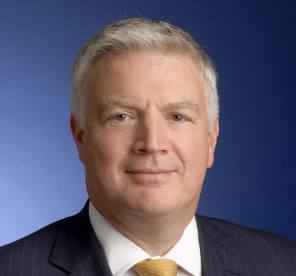

In its economic and fiscal outlook paper, the OBR said data from the first three quarters of 2021 to 2022 showed that withdrawals were once again on course to outstrip expectations and were up almost a fifth on the same period in 2020-21.
Its revised forecast of £1.7bn is up from £0.4bn in 2020-21 and £0.5bn (39 per cent) higher than it expected in October.
Steve Webb, partner at LCP, said: “Pension freedoms have the effect of bringing forward tax revenue for the Treasury. Instead of using a pension pot to buy an annuity where the taxable income can run for decades, people taking larger lumps early pay tax now, and often pay more tax overall.
“There are starting to be signs that people aged 55 plus are responding to the cost of living crisis by tapping into their pension pots and the OBR clearly expects this to continue”.
This Budget 2014 measure, known as pensions freedoms, gave individuals with defined contribution pensions the flexibility to withdraw their funds from age 55, subject to tax paid at their marginal rate, rather than the 55 per cent charge that was in place prior to that.
Jon Greer, head of retirement policy at Quilter, said: “Over 55s may now look to take advantage of pension freedoms to make ends meet in the absence of any help coming from the chancellor.
“The OBR has significantly increased its estimates of how much people will draw from their pension. It now expects receipts to be £1.7bn as people clamour to use their pension savings just to make ends meet during this cost-of-living crisis.”
The OBR said it also revised receipts from 2022 to 2023 onwards by an average of £0.8bn a year, as it assumes people will make use of earlier withdrawals to manage the rise in the cost of living this year.
It said: “The recent strength is likely to be linked to a pandemic-driven increase in the number of over-50s bringing forward their retirement plans and facilitating that with earlier access to their pension pots. This has led us to revise up our forecast of tax paid on the flexible drawing down of pension funds significantly.”
MPAA "missed opportunity"
This comes as the chancellor gave his spring statement today and announced measures to cut income tax from 20 pence to 19 pence and lift the National Insurance threshold by £3,000 to equalise it with income tax.
However, Kate Smith, head of pensions at Aegon, said the government “missed a clear opportunity” to increase the Money Purchase Annual Allowance, something the pension industry has been calling on since the start of the pandemic.
“OBR data is predicting that over 55s are expected to access their pensions earlier, and take out more money, simply to maintain their cost of living as pay packets are squeezed even further. It’s clear few people have understood the consequences of flexibly accessing their pensions, potentially with devastating consequences for their future finances.
“It’s time that this little-known complex rule is increased to £10,000 allowing people to rebuild their pension savings and getting their retirement plans back on track."
In addition, Andrew Tully, technical director at Canada Life, said this is not a temporary spike and sets the expectation that the cost of living crisis will be with us for years to come as people look to their pensions as a bank account to support their day-to-day living costs.
“This is understandable behaviour as people look to make ends meet but we need to remember that pensions are already likely to be stretched over a longer lifespan than previous generations and any withdrawals will need to be sustainable over this period,” he said.
“Savers who choose to access their pension pots should also be aware of the MPAA sting in the tail, which significantly limits how much you can continue to contribute to your pension should you wish to top-up any withdrawals.”
sonia.rach@ft.com
What do you think about the issues raised by this story? Email us on FTAletters@ft.com to let us know



